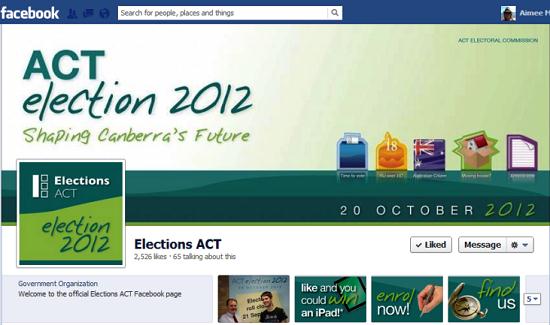
ACT Electoral Commissioner Phillip Green says there is still “quite a large hole in the representation of those eligible for voting aged 18-19.”
Is it a case of the youth of Canberra being disengaged with local politics so not enrolling and don’t want to get involved, or simply laziness? Or is it up to the politicians to become more engaging and do more to get youth involved?
An an age where reality TV and live voting shows have become quite popular, it seems that some Australians are more willing to pay money – in the form of text message voting – to decide the outcome of a reality TV show, the outcome of which does not directly impact upon them.
Apparently, the same level of participation can’t be said for ACT politics. As voting is compulsory, there are those who vote simply because they have to, and pick the first most recognizable names or favorite party name whom they choose then and there come voting time.
Worse than mindlessly voting, almost half of Canberra’s youth who are of voting age aren’t enrolled at all. It is not only a case of a lack of enrolment, but also a lack of severe underrepresentation of that age bracket.
Voting insecurity
In a Voting Policy Platform Report from The Youth Coalition of the ACT, the idea is brought forward that the low percentages of the youth enrolled to vote may be due to several factors
[Lack of youth enrolment and voting is due to] a lack of education around government and the political system for young people; and ease of access to enrolment. Youth Coalition consultations on this issues revealed that many young people do not feel connected to politics or politicians. This highlights the need for governments to make a concerted effort to engage with young people in a meaningful manner. The young people involved with this consultation also raised access to enrolment and voting as an issue, and identified it would be useful to be able to enroll via the Internet.
The Australian Electoral Commission (AEC) is conducting studies as to the reason for this lack of enrolment and engagement as part of its Youth Electoral Study (YES).
A YES national survey of Year 12 students and many group discussions with students and non-students across the country found that most young people will register on the electoral roll, mostly because they believe it is the right thing to do. Mr Green suggests that there is feeling amongst young people they are not prepared enough to vote.
About half the students feel they lack the knowledge to understand the issues, the political parties, to make a decision about voting and in general to vote. Given that most of the students in our study could enroll and many could vote, this insecurity with voting is problematic.
I asked some of the youth of Canberra for myself, how they felt about voting and the political process in general.
It’s all this red tape and political spin involved with getting information. I know that the world pretty much needs governments and politicians, but they make such a big fuss over every little thing and take forever to make small decisions. I think the politicians should start paying attention to their younger voters. – Tyler, 19
I find politics very interesting, it’s just that kids are scared off by the boring part. I’m excited to be a part of the voting world and democratic process. – Lachlan, 16
I not only don’t know enough about the whole thing to be able to form a valid opinion, let alone compare and choose who would be better. Whether it’s just me or the age group, I have no ambition to learn more about it, because it feels like it doesn’t directly affect me. I used to say I’d just donkey vote, but it’s too important a privilege, so I just vote for the favourite. – Daniel, 16
Technology the answer?
The NSW and Victorian parliaments have recently introduced “direct enrolment” processes, where eligible citizens, in particular young people, have been directly enrolled, without having to fill in a form. A process which Mr. Green says has “significantly increased enrolment rates across all age groups.”
With such a low enrolment rate in the ACT for the age group who seem most engaged with technology, perhaps this is the way of the future, and a way to increase enrolment and engagement with local politics. Commissioner Green also noted that this is the first time Twitter and Facebook have been used in the enrolment and election process.
Our “win an iPad” campaign on our Facebook page encouraged over 2,500 people to like us and receive regular reports on issues related to the ACT election. While it is difficult to quantify the effectiveness of social media, it is likely that this campaign contributed to the increase in the participation rate of young people we experienced in the lead up to the roll close for the 2012 election.
While creating a more appealing voting process may increase the rate of enrolment, getting the youth to care about who and what they vote for may mean that the politicians need to be more upfront and engaging.







Crikey is committed to hosting lively discussions. Help us keep the conversation useful, interesting and welcoming. We aim to publish comments quickly in the interest of promoting robust conversation, but we’re a small team and we deploy filters to protect against legal risk. Occasionally your comment may be held up while we review, but we’re working as fast as we can to keep the conversation rolling.
The Crikey comment section is members-only content. Please subscribe to leave a comment.
The Crikey comment section is members-only content. Please login to leave a comment.